Bosch nodded. He was getting the sense of the fruitlessness of his search. Trumont Story was dead and the connection to the gun was gone with him. He was really no closer to knowing who killed Anneke Jespersen than he was on the night twenty years ago when he stared down at her body and apologized. He was nowhere.
Gant identified his disappointment.
“Sorry, Harry.”
“Not your fault.”
“It probably saves you a bunch of trouble anyway.”
“Yeah, how so?”
“Oh, you know, all those unsolved cases from back then. What if the only one we closed was the white girl’s? That probably wouldn’t go over too well in the community, know what I mean?”
Bosch looked at Gant, who was black. He hadn’t really considered the racial issues in the case. He was just trying to solve a murder that had stuck with him for twenty years.
“I guess so,” he said.
They sat in silence for a long moment before Bosch asked a question.
“So, what do you think, could it happen again?”
“What, you mean the riots?”
Bosch nodded. Gant had spent his whole career in South L.A. He would know the answer better than most.
“Sure, anything can happen down here,” Gant answered. “Are things better between the people and the department? Sure, way better. We got some of the people actually trusting us now. The murder count’s way down. Hell, crime in general is way down and the bangers don’t run the streets with impunity. We got control, the people have control.”
He stopped there and Bosch waited but that was it.
“But . . . ,” Bosch prompted.
Gant shrugged.
“Lotta people without jobs, lotta stores and businesses closed up. Not a lot of opportunities out there, Harry. You know where that goes. Frustration, agitation, desperation. That’s why I say anything could happen. History runs in a cycle. It repeats itself. It could happen again, sure.”
Bosch nodded. Gant’s take on things was not far from his own.
“Can I take these files?” he asked.
“As long as you bring them back,” Gant said. “I’ll also loan you the black box.”
He reached behind him and grabbed the card box. When he turned back, Bosch was smiling.
“What? You don’t want it?”
“No, no, I want it. I’m just thinking of a partner I had once. This was way back. His name was Frankie Sheehan, and he—”
“I knew Frankie. A shame what happened.”
“Yeah, but before that, when we were partners, he always had this saying about working homicide. He said, you have to find the black box. That’s the first thing, find the black box.”
Gant had a confused look on his face.
“You mean like on a plane?”
Bosch nodded.
“Yeah, like in a plane crash, they have to find the black box, which records all the flight data. They find the black box and they’ll know what happened. Frankie said it was the same with a murder scene or a murder case. There will be one thing that makes it all make sense. You find it and you’re gold. It’s like finding the black box. And now here you are, giving me a black box.”
“Well, don’t expect too much outta this one. We call them CRASH boxes. It’s just the shake cards from back then.”
Before the advent of the MDT—the mobile data terminal installed in every patrol car, officers carried FI cards in their back pockets. These were merely 3 x 5 cards for writing down notes from field interviews. They included the date, time, and location of the interview, as well as the name, age, address, aliases, tattoos, and gang affiliation of the individual questioned. There was also a section for the officer’s comments, which was primarily used to record any other observations worth noting about the individual.
The local chapter of the American Civil Liberties Union had long decried the department’s practice of conducting field interviews, calling them unwarranted and unconstitutional, likening them to shakedowns. Undaunted, the department continued the practice, and the FI cards became known across its ranks as shake cards.
Bosch was handed the box, and opening it, he found it full of well-worn cards.
“How did this survive the purging?” he asked.
Gant knew he meant the department’s shift toward digital data storage. Across the board, hard files were being turned into digital files to make way for an electronic future.
“Man, we knew that if they archived these on computers, they would miss all kinds of stuff. These are handwritten, Harry. Sometimes you can’t figure out the writing to save your life. We knew most of the info on these cards wouldn’t make it across, know what I mean? So we held on to as many of those black boxes as we could. You were lucky, Harry, we still had the Sixties in a box. Hope there’s something in there that helps.”
Bosch pushed back his chair to get up.
“I’ll make sure you get it back.”
Books by Michael Connelly
Featuring Harry Bosch

The Black Echo

The Black Ice

The Concrete Blonde

The Last Coyote

Trunk Music

Angels Flight

A Darkness More Than Night

City of Bones

Lost Light

The Narrows
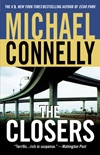
The Closers
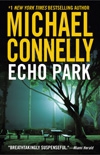
Echo Park
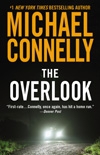
The Overlook
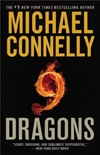
Nine Dragons
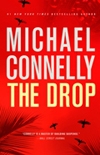
The Drop
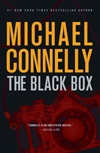
The Black Box
Featuring Mickey Haller
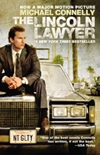
The Lincoln Lawyer
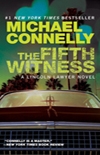
The Fifth Witness
Featuring Harry Bosch and Mickey Haller
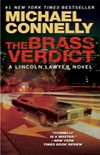
The Brass Verdict
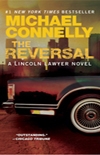
The Reversal
Featuring Jack McEvoy
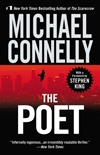
The Poet

The Scarecrow
Other Novels
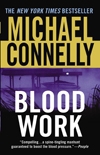
Blood Work